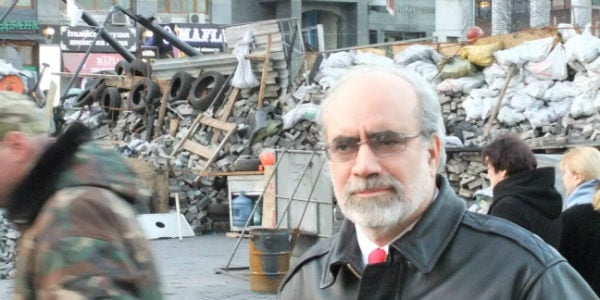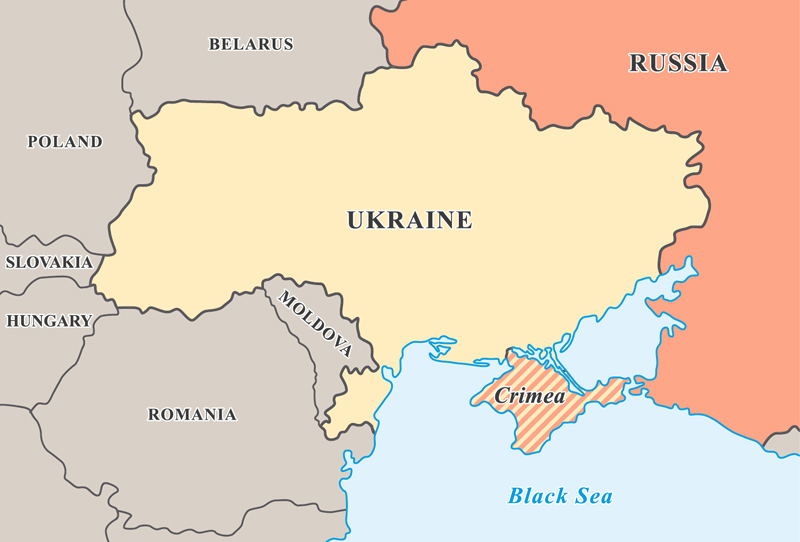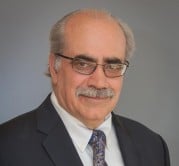Credit unions continue to grapple with Ukraine crisis

World Council has been in touch with the Ukrainian National Association of Credit Unions (UNASCU) since the months of violence in Kiev. On February 20-21, snipers killed protesters downtown at Maidan Square. Credit union people participated in those protests, many working until 1 p.m. before going to the square to volunteer or take food, blankets and medical supplies for the wounded. A handful of the 102 protesters killed were credit union volunteers.
Ukraine has 600 credit unions that serve one million members. Their credit unions restarted in the early 1990’s with support from World Council and the Canadian Cooperative Association. They are small by U.S. standards, with about US$330 million in total assets. They primarily respond to the common person’s demand for consumer finance, appliances and education. They finance self-employment and small businesses, and are often the only institutions financing small farmers in rural villages.
The last four years have been very difficult for Ukraine’s credit unions, which were required to acquire licenses to execute typically common financial intermediation transactions. Such licenses required multiple fees and personal facilitation payments. Still, licenses and approvals were rarely forthcoming, which obstructed credit union services and growth.
After the regime change, World Council and the Polish Association of Credit Unions worked with the Ukrainian association to update their legislative and regulatory reform with little success in adoption of best practices. Credit union folks were optimistic that the new reformist government would provide a more secure and safe environment for conducting business.
The Crimean Peninsula had 31 credit unions. Some had loans out from the national association. Following the Russian Federation’s annexation of Crimea, those loans became unrecoverable. Credit unions there now need to register and operate under Russian law, and convert operations to the ruble. World Council asked the Russian Credit Union League to assist those credit unions so that they can continue serving their members.
With the expanded conflict in Eastern Ukraine, credit unions in conflict zones face security threats. Managers have implemented armed security and reduced operating hours. Credit unions focus on managing their liquidity. The system as a whole is 92% lent out. In this period of upheaval, members fall back on their savings and hold cash to help them through hard times, so credit unions have seen savings withdrawals throughout Eastern Ukraine. Delinquency has increased as borrowers flee the violence and leave Ukraine. Credit unions in Western Ukraine have not experienced savings withdrawals as of yet, and remittance flows from Ukrainian workers sending money home from Western Europe have not dipped.
At the same time that savings withdraw, loan demands—however small—increase. Farmers still need to harvest their crops, and small entrepreneurs or tradesmen still need to earn a living to support their families. Local banks stopped operations and international banks withdrew from Eastern Ukraine. Locals have asked credit unions to fill the gap. Credit unions gamely struggle with expanding their lending skills for small enterprise lending, which is currently about 15% of their portfolio. This requires not only liquidity, but also updated business lending methodologies for credit unions that have largely done consumer finance and now look to respond to increased business lending demands.
If the truce takes hold and sticks, credit unions have the power to keep financial services available where banks have pulled out, increasing jobs and financing small and medium enterprises. Worldwide, credit unions continue bringing together people of different ideologies and ethnicities—despite their conflicts—to participate in a democratic process to rebuild their community, restart their economy, reknit their social community and feed their families.






